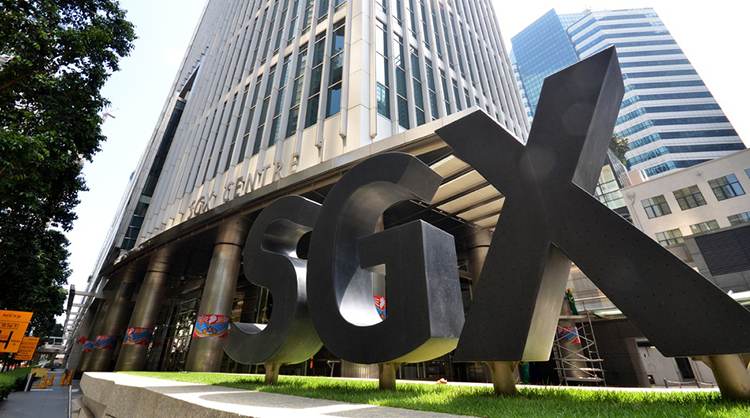
According to bankers, venture capitalists, and analysts, Singapore might list up to a dozen special-purpose acquisition companies (SPACs) within the next 12-18 months, owing to a swarm of Southeast Asian digital start-ups seeking finance and new guidelines.
The “de-SPACing” process, which is currently dragging on U.S. deals as hundreds of SPACs chase targets, will be a critical test for SGX when such businesses, also known as blank-cheque or shell firms, are required to seal merger targets within two years.
Analysts say it will be difficult for Singapore to entice its usually risk-averse investors to engage in a new asset class, especially after SGX’s earlier attempts to shore up its equity market were unsuccessful.
Large multinational institutions, on the other hand, have flocked to Hong Kong in recent years for blockbuster stock offerings.
Learn how to trade crypto, Forex, CFDs, and Binary options in Singapore with trusted brokers
While the SPAC frenzy has died down in the United States since early 2021 due to regulatory scrutiny and low returns, SGX welcomed three SPACs in their first significant appearance in Asia last month. The appeal is that they are less complicated and, in most cases, more beneficial for entrepreneurs than an IPO.
“The pipeline for the first SPACs is superb,” said Eng-Kwok Seat Moey, DBS capital markets head and co-issue manager on two SPAC IPOs with Credit Suisse.
According to bankers, Singapore SPACs are likely to pursue targets in the fintech, tech, and consumer sectors. Target valuations might range from S$800 million ($596 million) to S$2 billion, with deals likely to be made this year.
“The size of the opportunity, of younger companies scaling up and going public, is many times what it was many years ago, and it’ll be multiples of that over the next decade,” said Ashish Wadhwani, a Singapore-based managing partner at IvyCap Ventures, an Indian firm with about $400 million in assets under management.
According to Refinitiv data, SGX funding dropped to $565 million last year, a six-year low, with only eight listings.
Two of the three SPACs were oversubscribed, indicating Singapore’s cautious stance. State investor Temasek-linked businesses were among the cornerstone investors in two of the three SPACs.
In January, Temasek affiliate Vertex Venture Holdings, one of Southeast Asia’s largest funds, was the first to launch a S$200 million tech SPAC.
“In all of these processes, I anticipate the exchange and authorities to be extremely cautious.” “I don’t think they’ll just open the floodgates and let everyone in,” said Chua Kee Lock, CEO of Vertex Asset Management, which oversees $5.1 billion in assets.
A Temasek unit was among the backers of regional tech and industrial buyout firm Novo Tellus’ S$150 million SPAC.
Tikehau Capital, a European asset manager with two SPACs listed in Europe, has chosen Singapore for a S$170 million SPAC listing, with co-sponsors including LVMH chairman Bernard Arnault.
Subscribe for our newsletter
Get Forex brokers reviews, market insights, expert analytics and education material right into your inbox for free!
The latest developments could lead to more global funds actively participating in Singapore’s public equities markets, which is already a significant Asian finance and wealth powerhouse.
“It’s like a chicken-and-egg dilemma.” “Perhaps if you establish this SPAC market, more investors will come,” Wadhwani hypothesized.
SPACs frequently issue warranted stock, which is seen as a vital tool to attract early investors.
Still, for affluent investors like Prantik Mazumdar, the listing of significant regional names in Singapore and successful business acquisitions of SPACS are important factors to consider before investing in pre-IPO US tech businesses.
“I’m certainly on the fence unless there are exclusive opportunities in specific industries and differentiated structures that SPACs offer,” Mazumdar added.
In 2010, SGX considered SPACs but received negative feedback from the market. It developed a SPAC framework last year, with the goal of scrutinizing sponsors’ track records.
It required them to put money into their SPACs, and unlike Hong Kong, SGX permitted regular investors to participate.
“A SPAC listing can undoubtedly assist a start-up exit and raise financing faster and with less fuss,” said Chandra Tjan, co-founder of Alpha JWC Ventures, an Indonesia-focused firm.
As dealmaking surged last year, Singapore also established two funds with a combined capacity of S$2 billion for late-stage fundraising and IPOs.
According to data from research firm Tracxn, twenty private corporations in Southeast Asia were valued at $1 billion or more in 2021, while 53 firms were listed as having the potential to be valued at $1 billion in the near future.
“In terms of capital requirements and willingness to welcome independent directors who will decide the de-SPAC,” said Neil Parekh, CEO of Pegasus Asia, a Tikehau-backed Singapore SPAC.
The success of Singapore as a global center for real estate investment trusts (REITs) could serve as a model for developing a SPAC market.
“Singapore has all the ingredients for a robust SPACs market, and it can flourish in the same way as the REIT market if we keep a careful eye on sponsor quality and uphold overall listing standards,” said Mohamed Nasser Ismail, SGX’s head of equity capital markets.
($1 = 1.3426 Singapore dollars)